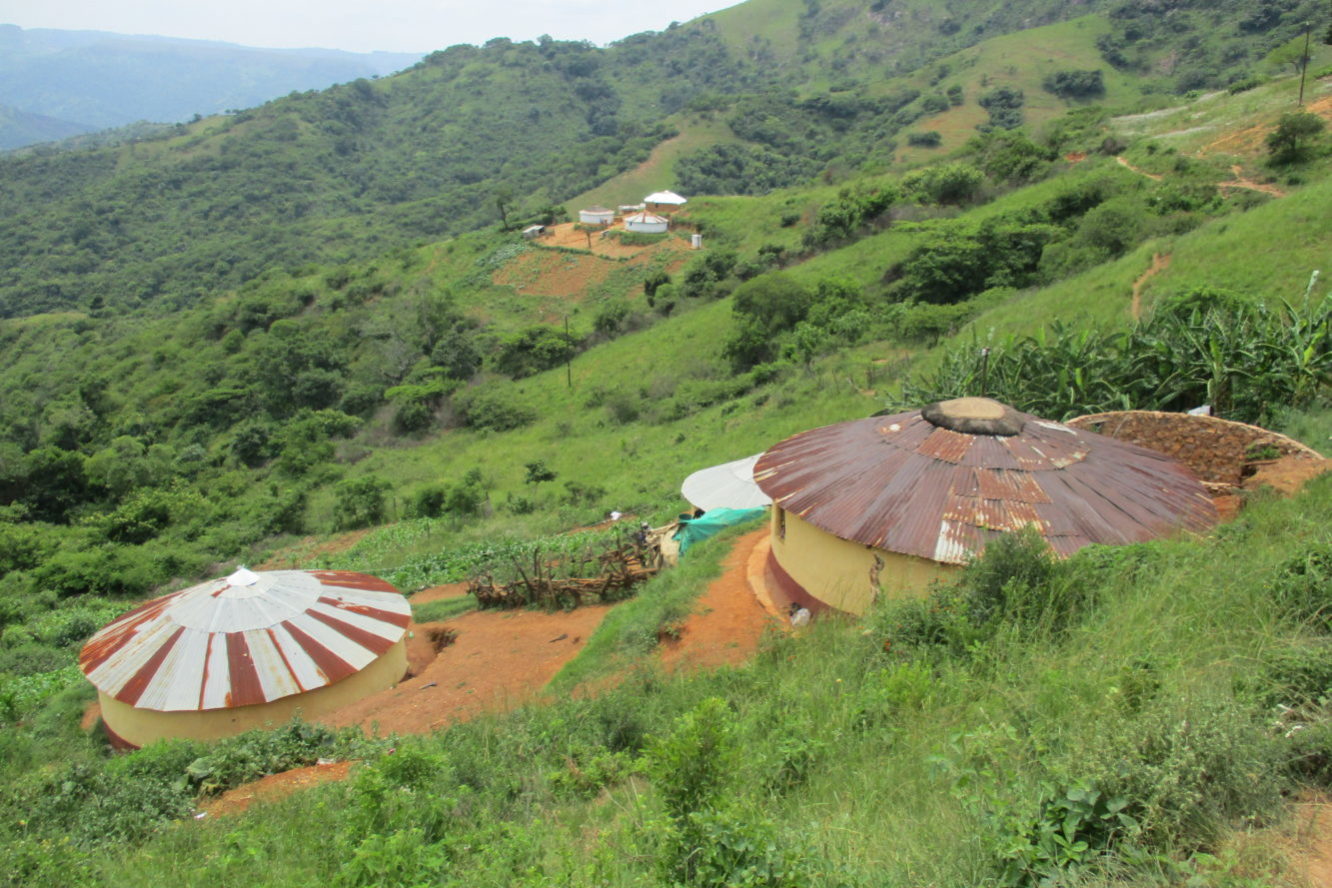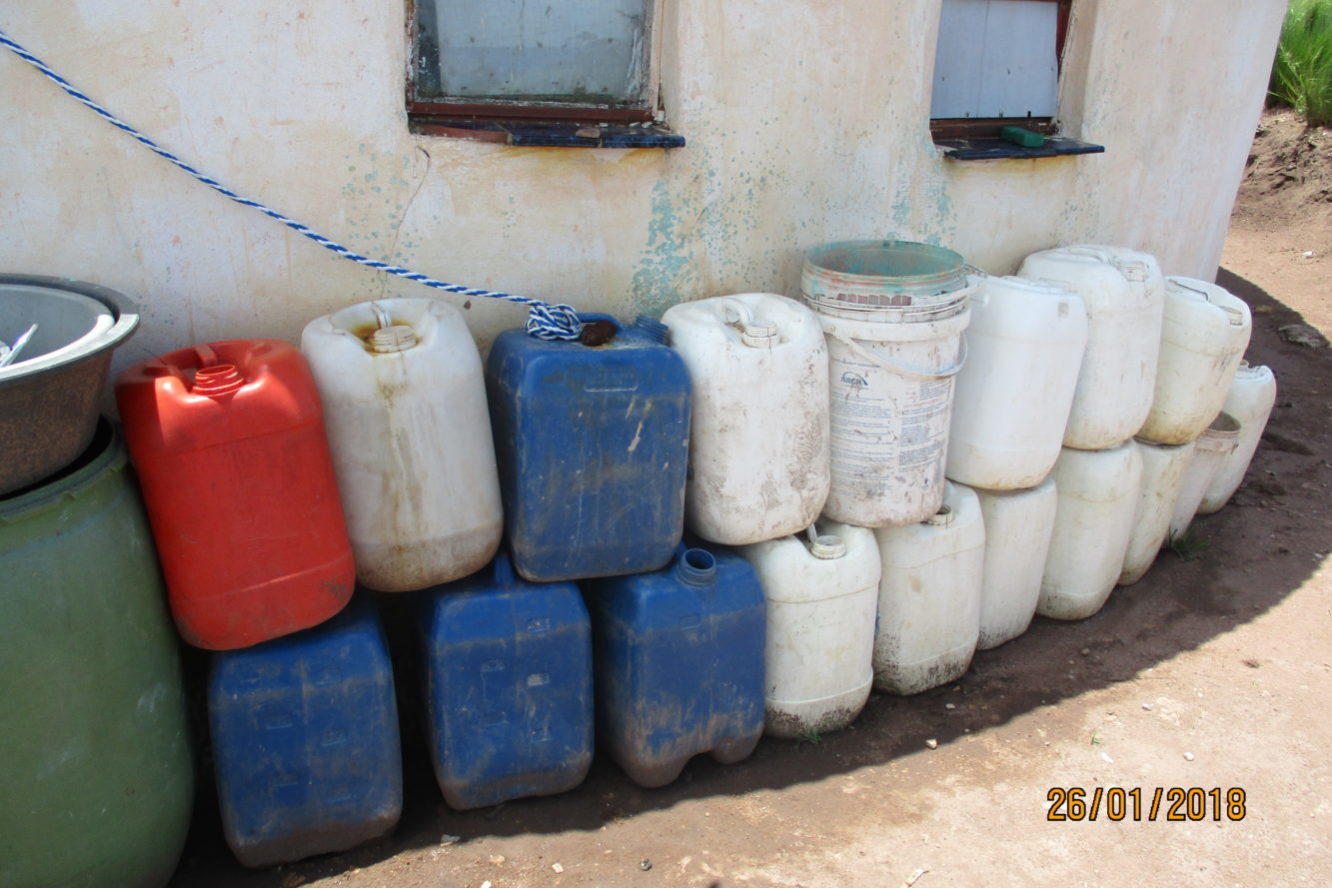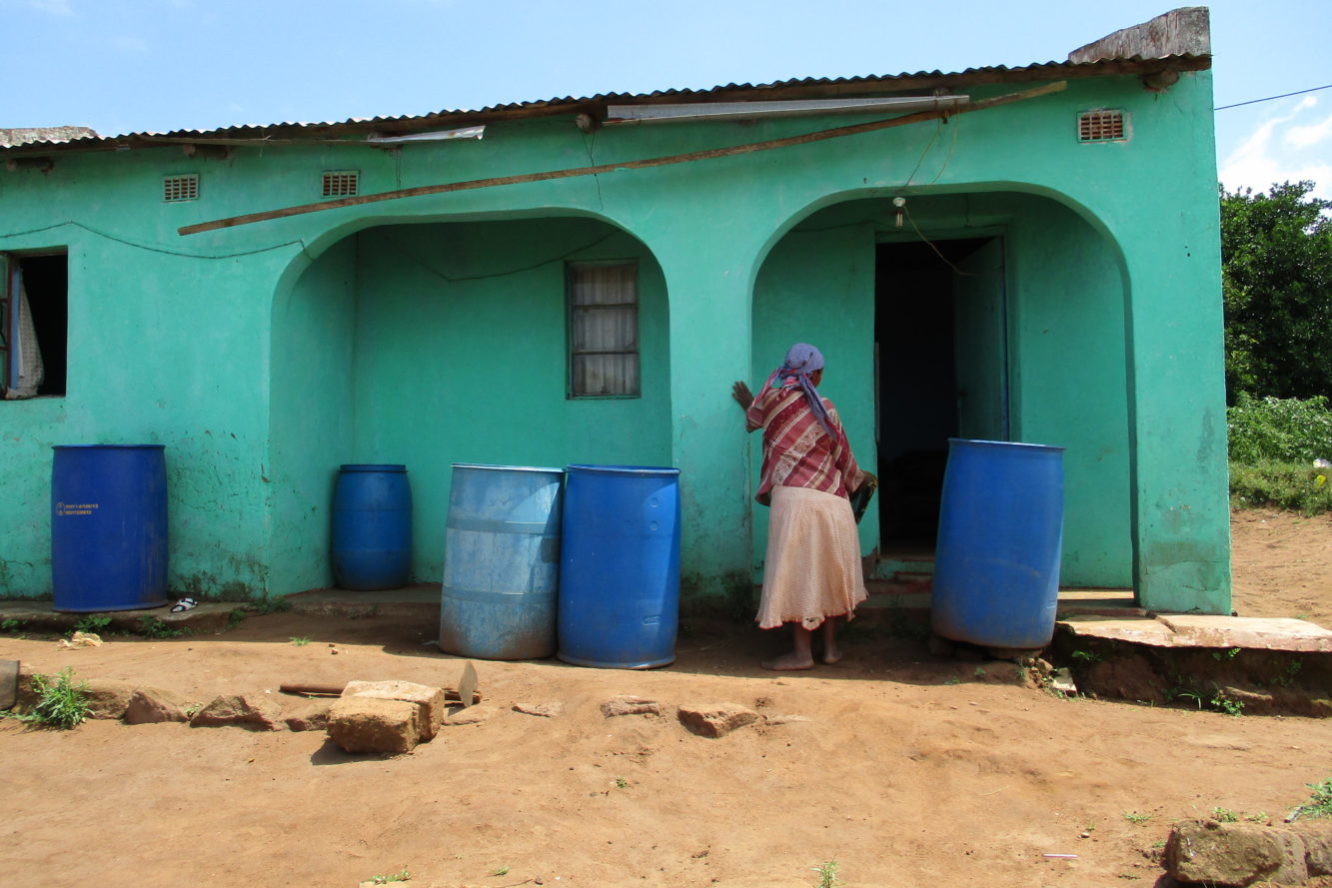PhD Project
In my research project, I explore water security of different water users in the Upper Umvoti River Catchment in KwaZulu-Natal, South Africa. Rural communities that largely depend on streams, springs and the river with its tributaries live downstream of vast commercial timber plantations with water-intensive, alien tree species such as the gum tree.
Using a Bayesian statistical model, we studied the effect of afforestation on the streamflow in the Umvoti River and found that the effects of afforestation and climate change on streamflow dynamics are interdependent. Specifically, the plantation effect weakened under conditions of high-temperature range anomalies.
Furthermore, we investigated water security of rural households. A comprehensive household survey and interviews with rural water users were the basis for our analysis. We grouped water users into three groups according to their primary water source: public standpipes served by the district municipality, illegal yard connections and of streams, rivers or springs. In a statistical analysis, we compared these groups in terms of their water availability, water collection parameters such as time for a roundtrip and water-related health and productivity. We found that municipal water services have largely failed to improve water access and reduce household water insecurity for users of standpipes and users of springs, rivers or streams, with adverse effects on their health and productivity; only users of illegal yard taps benefit from water services. Partial coverage, incremental infrastructure development, neglect of infrastructure maintenance and corruption have produced uneven power relations that result in conflicts over water, vandalism and misuse of water infrastructure.
In absence of reliable municipal water services, rainwater harvesting (RWH) is an important alternative water source in the study area. We discovered that there were different practices or modes of RWH. While some households had conventional large RWH tanks with straight, off-the-shelf gutters, others harvested rainwater in 210l-drums and dishes, with makeshift gutters tailored to the round huts. These differences in RWH modes are not only determined by income, but also by the type of housing and water availability and they have implications for household water security. Our findings are relevant for dissemination of RWH in rural areas.
My research project is funded by the German Excellence Initiative.
Output
Lebek, K.; Krueger, T. 2021 Conventional and makeshift rainwater harvesting in rural South Africa: exploring determinants for rainwater harvesting mode, International Journal of Water Resources Development https://doi.org/10.1080/07900627.2021.1983778
Lebek, K.; Twomey, M. and Krueger, T. 2021 Municipal failure, unequal access and conflicts over water: A hydrosocial perspective on water insecurity of rural households in KwaZulu-Natal, South Africa. Water Alternatives 14(1): 271-292 https://www.water-alternatives.org/index.php/alldoc/articles/vol14/v14issue1/613-a14-1-8/file
Lebek, K.; Senf, C.; Frantz, D.; Monteiro, J. A. F. and Krueger, T. 2019 Interdependent effects of climate variability and forest cover change on streamflow dynamics: a case study in the Upper Umvoti River Basin, South Africa. Regional Environmental Change 19 (2019): 1963–1971 https://doi.org/10.1007/s10113-019-01521-8






